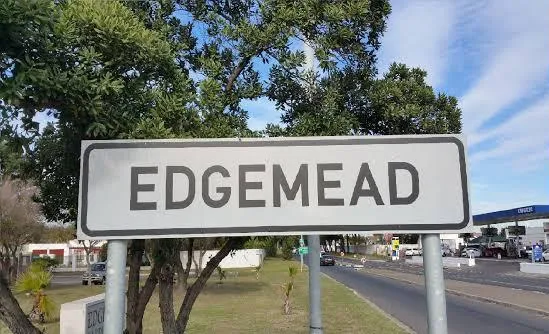Edgemead residents fight CID proposal

A proposal that could see Edgemead residents paying an extra R50 million in levies over five years has sparked strong opposition from a growing coalition of homeowners, business owners and political representatives.
Image: SUPPLIED
A proposal that could see Edgemead residents paying an extra R50 million in levies over five years has sparked strong opposition from a growing coalition of homeowners, business owners, and political representatives.
The initiative, aimed at establishing a City Improvement District (CID) in the suburb, would require households to pay between R200 and R500 plus VAT each month on top of existing municipal rates and taxes.
The Cape Independence Party (CAPEXIT) has joined residents in rejecting the plan, which they describe as unaffordable, unnecessary, and procedurally flawed.
Opposition has been gaining momentum through the Facebook group STOP Edgemead CID, created on Tuesday, August 19, and now supported by more than 750 members.
“Property owners are extremely annoyed that they now face the prospect of being forced to pay additional levies. We’re already under huge financial pressure. This is totally unacceptable,” said resident and STOP ECID member Kirsten Fernandes.
“It is baffling that a flawed process with so little actual input from property owners could evolve into a multi-million-rand business plan that claims to represent our priorities, she said.”
Ms Fernandes said residents are particularly concerned about the financial burden.
“The CID would impose a compulsory levy over five years, escalating each year, on top of already high municipal rates. Some households may be forced to sell or downsize. This is a project with no clear, demonstrable need - and a cost residents simply cannot afford.”
She said that the City of Cape Town’s CID branch described objecting residents as creating a “chaotic environment” at the August public meeting, a claim residents say ignores legitimate concerns about transparency and accountability.
Residents and community organisations have argued that Edgemead is already a safe, well-maintained suburb with no demonstrated need for additional services.
Residents say visible patrols by police, five Metro Police officers, and a strong Neighbourhood Watch structure already meet safety needs.
CAPEXIT Ward 5 candidate Kevin Siebert described the plan as “a solution in search of a problem,” saying it was “undemocratic and unacceptable” to impose new levies through what he called an exclusionary and opaque process.
Concerns have also been raised about how the proposal was developed. The Urban Management Survey, which forms the basis of the draft business plan, reached just 579 out of 3 600 property owners - about 16 percent of Edgemead’s households.
Despite this, the CID Steering Committee claimed 62 percent of owners supported the idea.
CAPEXIT’s Karl Bodin dismissed this as “nonsense,” accusing the committee of overstating community support.
“At a public meeting on Thursday, August 28, residents say only three people indicated they had even been aware of the CID initiative beforehand, despite claims that 90 percent of the suburb had been informed,” he said.
The City of Cape Town has stressed that the process is community-driven.
The City's mayoral committee member for spatial planning and environment, Eddie Andrews, said the CID Steering Committee - made up of property owners - is responsible for building support.
“There is currently no application. If the committee fails to achieve 60 percent written support from property owners, the application cannot be submitted to the City. This is a community initiative; the City only guides them through the process,” he said.
The draft business plan is open for public comment until Monday, 29 September.
If amended and reintroduced, it will require 60% approval from property owners before any application can be lodged.
Should Council eventually approve a CID, the City will take an oversight role, including auditing finances and monitoring compliance with legislation, said Mr Andrews.
STOP ECID has urged property owners not to sign consent forms and has warned it may pursue legal action if the CID is implemented despite what it calls overwhelming opposition.
Residents can submit objections or feedback via info@edgemeadcid.co.za, including their full name, ERF number, and contact details.